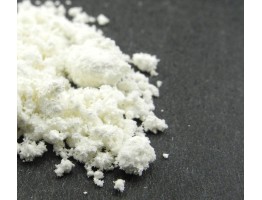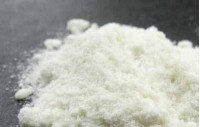
Buy APICA for sale online - USA vendor

- FREE shipping, 6-7 days delivery time
- Inner sending exist.
The main payment option is Bitcoin. As extra ways WU, MG.
We alwayse provide FREE samples of Top products with the main order.
Loyalty program exist, second order will be - 5%OFF
Safely work only with us! We provide - re-shipment guarantees.
Here you'll discover unused lawful items of immaculate quality.
Some time recently purchase if you don't mind make beyond any doubt that the items beneath your curiously are lawful in your country.
We do not offer a pharmaceutical items or beneath control items.
Table of Contents
- Introduction to APICA
- Chemistry and Pharmacology
- Physical Effects
- Cognitive Effects
- Toxicity and Harm Potential
- Dosage Guidelines
- Legal Status
- FAQ
Understanding APICA: A Synthetic Cannabinoid
Introduction to APICA
APICA, also known as SDB-001 and 2NE1, represents a novel synthetic cannabinoid known for its ability to induce cannabis-like effects upon administration. Research indicates that it functions as a potent agonist for both the CB1 and CB2 cannabinoid receptors.
Origin and Naming Convention
The moniker "2NE1" seems to draw a connection to the South Korean all-girl K-Pop group, highlighting a naming convention shared with a chemically related compound, AKB48. Initially identified in Japan in 2011, APICA and AKB48 were found in a product named "Fragrance Powder". Subsequently, APICA has become accessible for purchase as a research chemical through online vendors.
Routes of Administration and Pharmacology
Typically, synthetic cannabinoids like APICA are smoked or vaporized to achieve rapid onset and offset of effects. Limited information exists regarding alternative routes of administration, although it's conceivable that when dissolved in lipids, APICA could be orally active, potentially extending its duration of action. It exhibits insolubility in water but dissolves in ethanol and lipids, as reported.
Risks and Precautions
Contrary to natural cannabis, prolonged abuse of synthetic cannabinoids, including APICA, has been linked to numerous fatalities and heightened toxicity. Consequently, extended use or excessive dosing is strongly discouraged. Engaging in thorough independent research and adopting harm reduction strategies are imperative for individuals considering the utilization of this substance.
Understanding APICA: Chemistry and Pharmacology
Chemistry of APICA
APICA, formally known as N-(1-adamantyl)-1-pentyl-1H-indole-3-carboxamide, represents a synthetic indole cannabinoid. Like many synthetic cannabinoids, its structure can be delineated into four interconnected components: core, bridge, head, and tail. In APICA, the core indole group is substituted at R1 with a pentyl chain tail and at R3 with a carboxamide bridge linked to an adamantyl head.
APICA is considered an analog of both AKB48, which substitutes the indazole group for APICA's indole group, and STS-135, where the pentyl tail is further modified with a terminal fluorine.
Pharmacology of APICA
APICA functions as a full agonist of cannabinoid receptors, exhibiting similar potency at both CB1 and CB2 receptors. In vivo experiments on rats demonstrated that APICA has potency comparable to Δ9-THC and approximately one-third the potency of JWH-018. Notably, APICA appeared to induce a longer duration of effect compared to these cannabinoids. However, it's important to exercise caution when extrapolating animal studies to human responses.
Pharmacological investigations have revealed EC50 values of 6.89 ± 0.11nM at CB1 and 7.54 ± 0.11nM at CB2. APICA likely shares many in vivo properties with Δ9-THC, although the precise mechanisms underlying its effects and their contribution to the cannabinoid high remain scientifically unvalidated.
In vivo metabolic studies have indicated that APICA undergoes complete metabolization, with no detectable original compound in urine. Major metabolites include mono- or dihydroxylated compounds on the adamantyl ring system and monohydroxylated compounds on the pentyl chain.
Subjective Effects
Disclaimer: The effects described below reference the Subjective Effect Index (SEI), derived from anecdotal user reports and analyses by PsychonautWiki contributors. Therefore, these effects should be approached with a degree of skepticism.
It's important to note that these effects may not manifest predictably or reliably, with higher doses increasing the likelihood of experiencing the full spectrum of effects. Additionally, higher doses may lead to adverse effects, including addiction, severe injury, or even death.
Understanding APICA: Dosage Guidelines
Threshold Dosage
- Threshold: Less than 0.5 mg
Light Dosage
- Light: 0.5 - 1.5 mg
Common Dosage
- Common: 1.5 - 2 mg
Strong Dosage
- Strong: 2 - 4 mg
Heavy Dosage
- Heavy: 4 mg and above
Understanding APICA: Physical Effects
Spontaneous Physical Sensations
- Description: The "body high" induced by APICA is characterized by sharp, uncomfortable, all-encompassing, and electric tingling sensations that spread across the body following ingestion. This sensation remains consistent, intensifying rapidly upon onset, reaching its peak, and then dissipating abruptly.
Motor Control Suppression
- Effect: APICA leads to a partial to moderate suppression of motor control. The degree of suppression increases proportionally with the dose, although it seldom results in a complete inability to walk or perform basic movements.
Appetite Enhancement
- Effect: Similar to other cannabinoids, APICA triggers an increase in appetite, commonly referred to as "the munchies" in American and British culture. Clinical studies and surveys have established that cannabinoids enhance food enjoyment and stimulate interest in food. This effect is attributed to the activation of cannabinoid receptors in the hypothalamus responsible for regulating food intake.
Pain Relief
- Effect: APICA, like cannabinoids in general, has been clinically proven to alleviate pain by agonizing cannabinoid receptors CB1 and CB2. This pain-relieving property extends to synthetic cannabinoid receptor agonists.
Perception Alterations
- Perceived Bodily Heaviness or Lightness
- Changes in Felt Gravity
Dehydration Effects
- Dry Mouth: Commonly known as "cotton mouth" in American and British culture.
Vasodilation
- Note: Citations needed for this effect.
Understanding APICA: Cognitive Effects
Anxiety & Paranoia
- Effect: APICA is noted for its propensity to induce feelings of anxiety and paranoia, especially when compared to other cannabinoids. Individuals predisposed to such states of mind should exercise caution and avoid its use.
Emotion Enhancement
- Effect: Users may experience heightened emotions while under the influence of APICA.
Thought Connectivity
- Effect: APICA can promote enhanced connectivity between thoughts, potentially leading to more fluid thinking patterns.
Thought Deceleration
- Effect: Some users may perceive a slowing down of their thought processes while using APICA.
Conceptual Thinking
- Effect: APICA may lead to alterations in conceptual thinking, potentially fostering creativity or unconventional perspectives.
Increased Music Appreciation
- Effect: Users might find that their appreciation for music is heightened while under the influence of APICA.
Mindfulness
- Effect: APICA may facilitate a heightened state of mindfulness, characterized by increased awareness of the present moment.
Analysis Suppression
- Effect: The substance may suppress analytical thinking, leading to a more intuitive or instinctual mode of cognition.
Dream Suppression
- Effect: APICA may impact dream recall or the vividness of dreams experienced during sleep.
Psychosis
- Risk: Prolonged usage of synthetic cannabinoids like APICA may elevate the risk of psychosis, particularly in individuals with predisposing factors such as a personal or family history of psychotic illnesses like schizophrenia.
Auditory Effects
Enhancements
- Effect: APICA may enhance auditory perception, potentially leading to heightened sensitivity or appreciation of sounds.
Distortions
- Effect: Users may experience alterations in the perception of sounds, leading to distortions or unusual auditory experiences.
Understanding APICA: Toxicity and Harm Potential
Lack of Scientific Study
-
Context: The toxicity and long-term health effects of recreational APICA use have not been extensively studied in scientific contexts due to its limited history of human usage. Consequently, the exact toxic dosage remains unknown.
-
Anecdotal Evidence: Anecdotal reports from community members who have experimented with APICA suggest that at low to moderate doses and used sparingly, the substance does not appear to cause significant negative health effects.
Pre-existing Mental Conditions
-
Advisory: Individuals with severe pre-existing mental conditions are advised against ingesting synthetic cannabinoids like APICA due to their propensity to intensify one's current state of mind and emotions.
-
Risk of Mental Illness: Prolonged usage of synthetic cannabinoids, including APICA, may increase the risk of mental illness and psychosis, especially in vulnerable individuals with a history of psychotic illnesses like schizophrenia.
Dosage Precautions
- Precautions: As synthetic cannabinoids are active in the milligram range, it is crucial to exercise proper precautions when dosing to prevent negative experiences or harm to oneself and others. Harm reduction practices should be strongly adhered to.
Tolerance and Addiction Potential
-
Addiction Potential: Chronic use of APICA, like other synthetic cannabinoids, can lead to moderate addiction potential and psychological dependence among certain users.
-
Withdrawal Effects: Individuals who develop addiction may experience cravings and withdrawal effects upon cessation of usage.
-
Tolerance Development: Tolerance to APICA's effects develops with prolonged and repeated use, necessitating larger doses to achieve desired effects. Tolerance reduction typically occurs within 3 to 7 days after cessation, with a return to baseline within 1 to 2 weeks.
-
Cross-Tolerance: APICA induces cross-tolerance with all cannabinoids, reducing the effects of other cannabinoids after its consumption.
Overdose Potential
- Reported Symptoms: Overdose on APICA may result in physical discomfort, including heart palpitations, vertigo, and sedation, even at doses below dangerous levels. Overdose may induce anxiety, paranoia, or lead to unconsciousness.
Legal Status
- China: APICA is a controlled substance in China as of October 2015.
- Germany: Controlled under Anlage II BtMG (Narcotics Act, Schedule II) since December 13, 2014.
- Switzerland: APICA is a controlled substance specifically listed under Verzeichnis E.
- United Kingdom: Classified as a Class B controlled substance under the third-generation synthetic cannabinoids generic definition since December 14, 2016, making it illegal to possess, produce, supply, or import.
Frequently Asked Questions (FAQ)
1. What is APICA?
APICA, also known as SDB-001 and 2NE1, is a synthetic cannabinoid that produces modified cannabis-like effects when administered.
2. How does APICA affect the body?
APICA acts as a potent agonist for the CB1 and CB2 cannabinoid receptors, leading to various physical and cognitive effects.
3. What are the potential risks of using APICA?
The chronic use of APICA can be addictive with a high potential for abuse and may lead to psychological dependence. It can also exacerbate pre-existing mental conditions and increase the risk of psychosis, especially in vulnerable individuals.
4. How should APICA be dosed?
Dosage guidelines for APICA range from threshold doses of less than 0.5 mg to heavy doses of 4 mg or more. Proper precautions should be taken to avoid negative experiences and potential harm.
5. Are there any legal considerations regarding APICA?
APICA is classified as a controlled substance in various countries, including China, Germany, Switzerland, and the United Kingdom. Possession, production, supply, or importation of APICA may be illegal in these jurisdictions.
6. How should APICA use be approached safely?
It is strongly recommended to practice harm reduction strategies when using APICA, including starting with low doses, avoiding prolonged use, and seeking medical assistance if necessary. Individuals with pre-existing mental conditions should avoid its use altogether.
7. What are the long-term health effects of APICA use?
Due to limited scientific study, the long-term health effects of APICA are not well understood. Anecdotal evidence suggests that moderate use may not result in significant negative health effects, but caution should be exercised.
8. How does APICA compare to natural cannabis?
While APICA produces cannabis-like effects, it is important to note that synthetic cannabinoids like APICA have been associated with more severe adverse effects and toxicity compared to natural cannabis. Users should exercise caution and prioritize harm reduction practices.












